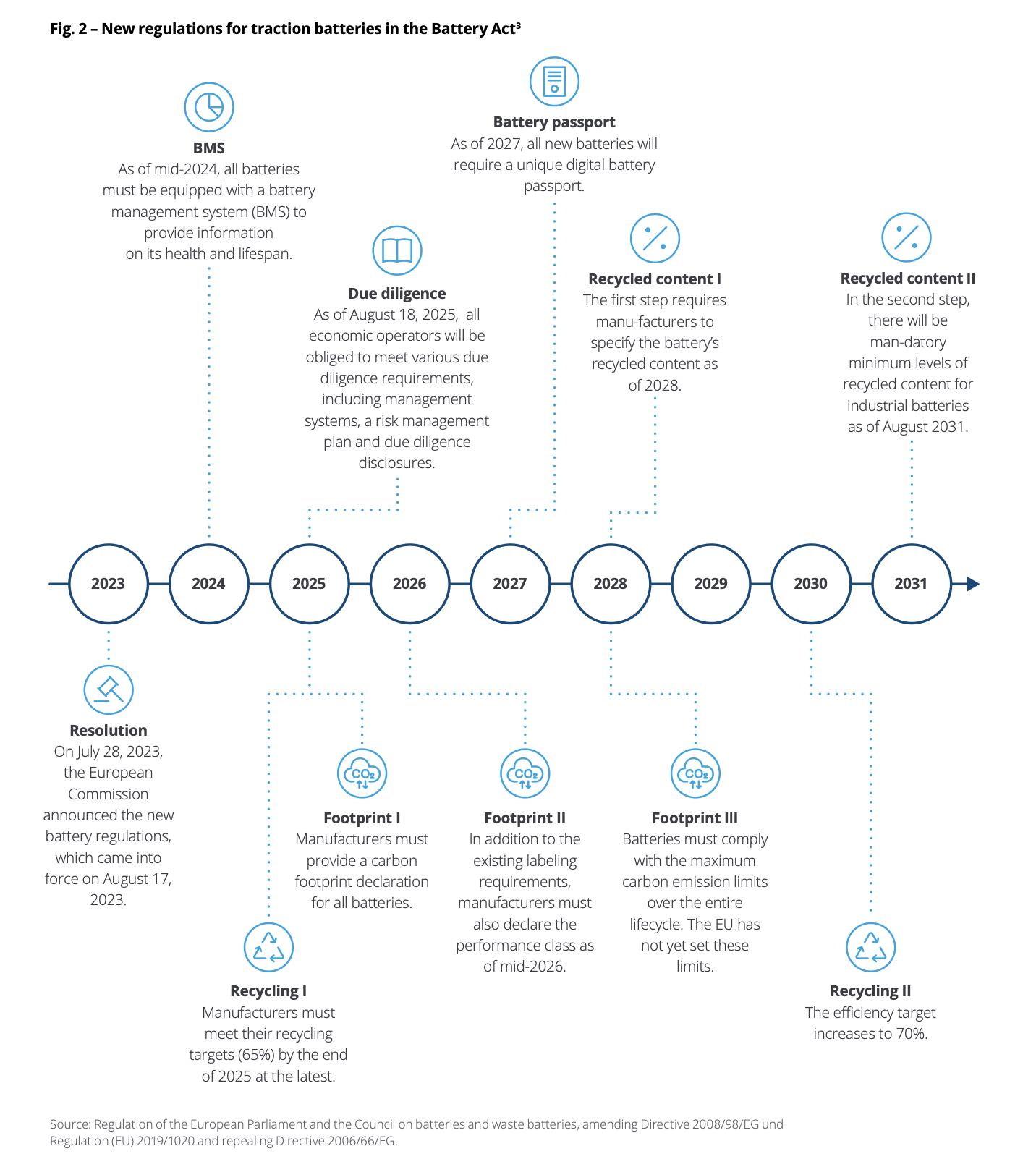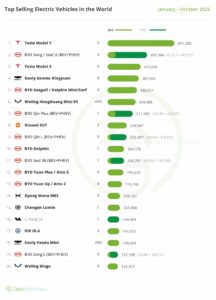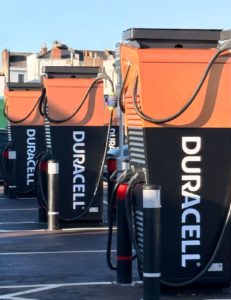Revolutionising Battery Management
The newly introduced regulations stipulate several groundbreaking measures to improve the entire lifecycle of batteries, from production to recycling. By mid-2024, all batteries must be equipped with a Battery Management System (BMS) that provides detailed information on their health and lifespan. This innovation is expected to significantly extend the useful life of batteries and optimise their performance across various applications.
In a further move to enhance transparency and traceability, the regulations mandate a unique digital battery passport for all new batteries starting in 2027. This digital passport will track the lifecycle of each battery, facilitating easier reuse and recycling by providing comprehensive data on its history and condition.
Stricter Due Diligence and Recycling Targets
From August 18, 2025, all economic operators involved in the battery lifecycle will be required to adhere to stringent due diligence requirements. These include implementing robust management systems, developing risk management plans, and disclosing due diligence measures. These steps are designed to ensure that every stakeholder in the battery value chain maintains high standards of environmental and social responsibility.
The regulations also impose ambitious recycling targets. By the end of 2025, manufacturers must meet a 65% recycling efficiency target for batteries. This target will increase to 70% by 2030. These measures are crucial in reducing dependency on raw material imports and mitigating the environmental impact of battery production and disposal.
Economic and Environmental Impact
The new Battery Act regulations reflect a broader shift towards a circular economy, where resources are reused and recycled to minimize waste and environmental impact. According to a recent Deloitte report, these regulations could significantly lower costs and increase revenues across the battery lifecycle, making electric vehicles more affordable and accelerating the transition to renewable energy sources.
The Deloitte study highlights the potential of the multi-life approach, where batteries are repurposed for different applications after their initial use in electric vehicles. This approach not only extends the useful life of batteries but also reduces the need for new raw materials and lowers the overall carbon footprint of battery production.
Challenges and Future Prospects
While the new regulations present a promising framework for sustainable battery use, they also pose several challenges. The current lack of sufficient industrial-scale recycling facilities and the high costs associated with recycling processes are significant hurdles that need to be addressed. Moreover, the success of these regulations will depend on the collaboration between manufacturers, policymakers, and other stakeholders in the battery value chain.
In conclusion, the new Battery Act regulations mark a significant step towards sustainable battery management in the EU. By promoting innovative solutions like the multi-life approach and imposing stringent recycling targets, the legislation aims to create a more sustainable and efficient battery lifecycle. As the industry adapts to these changes, the EU is poised to lead the way in sustainable battery use and set a global standard for environmental responsibility in the electric vehicle sector.
Source: Deloitte







